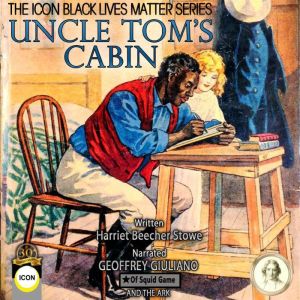

Uncle Tom's Cabin: The Icon Black Lives Matter Series
Author: Harriet Beecher Stowe
Narrator: Geoffrey Giuliano, The Ark
Unabridged: 18 hr 16 min
Format: Digital Audiobook Download
Publisher: Author's Republic
Published: 08/04/2022
Synopsis
Stowe, a Connecticutborn woman of English descent, was part of the religious Beecher family and an active abolitionist. She wrote the sentimental novel to depict the reality of slavery while also asserting that Christian love could overcome slavery. The novel focuses on the character of Uncle Tom, a longsuffering black slave around whom the stories of the other characters revolve.
Uncle Tom's Cabin was the bestselling novel and the second bestselling book of the 19th century, following the Bible, and is credited with helping fuel the abolitionist cause in the 1850s. The impact attributed to the book was so great that a likely apocryphal story arose of Abraham Lincoln meeting Stowe at the start of the Civil War and declaring, "So this is the little lady who started this great war."
The book and the plays it inspired helped popularize a number of negative stereotypes about black people including that of the namesake character "Uncle Tom", with the term now used to describe an excessively subservient person. These associations with Uncle Tom's Cabin have, to an extent, overshadowed the historical impact of the book as a "vital antislavery tool". However, the novel stands as a "landmark" in protest literature with later books such as The Jungle by Upton Sinclair and Silent Spring by Rachel Carson owing a large debt to it A oneofakind audio encounter for lovers of history, literature, spiritual texts, and inspirational writing.

